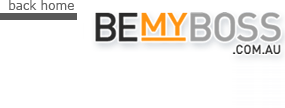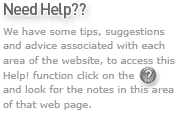Oh No! Behavioural Questions!! What are they & how to survive them.
Behavioural interviews are no longer new and now form the basis for at least some of most interviews. These questions show the employer how your past performance will influence your future performance by giving crucial information about your personality traits and how you handle “life situations”. You will need to be prepared to provide responses that will give specific examples of your experiences.
Depending on the job scope, you may be asked to provide work examples only, however most will allow you to use any relevant 'life examples' so long as they're applicable to the question you are being asked. If you are going to take the 'life examples' route, first ask the interviewer/s whether this is acceptable. Make sure though that in your planning that you have a back-up 'work example'.
In order to excel at a behavioural interview you will need to refresh your memory and dig into your past to pick out past work experiences, projects and/or situations that were unique to you and show your skills at dealing effectively (or better yet superbly) with work-situations.
Crucial Considerations for Responding to Behavioural Questions:
- Think of a specific situation, one where your best attributes were shown
Make sure that it's one which is in align with the position you are after, you may have performed really well in a “people faced” role, however, if you are applying for a job which requires you to work autonomously (on your own) then you should think up a situation where you had to meet a deadline on your own for example.
- The work required to complete the task
- The action you took
- The results of the action taken
- The problems experienced
- Your reaction to that problem/s and what (if anything) you did to resolve them
- Practice, practise and practise some more (see next section Show your true colours and Practice, Practice, Practice). This is very important. This will breed familiarity and ease at receiving this type of questioning and will ensure your answers are concise and will impress your prospective employer.
The following are popular behavioural interview questions:
- Give an example of a time when you went above and beyond to help a client
- Describe a time when you had to make a decision that was unpopular and how you handled it
- Give an example of a goal you reached and how you achieved that goal
- Give an example of a time when you used reason to solved a problem
- Have you ever encountered a problem with a co-worker and if so how did you handle it?
- Give an example of a time when you had to work effectively under pressure?
- How do you handle a difficult boss?
- Explain a time when you had to convince a team to work on a project that was unpopular
Pool of Questions and Answers
How responsible are you?
Q: Highlight your major responsibilities throughout your career?
A: Employers need to know if the candidate has held a position with responsibility in the past. The interviewer will ask candidates what responsibilities you held in previous positions and how those responsibilities relate to the job being applied for. They will want to know if you worked independently and who you reported to and if the reporting structure at your previous position bears any resemblance to the one being applied for.
Q: In your experience describe a time you had a difficult problem and how you solved the problem?
A: Employers need to assess your ability to work on a variety of projects with different degrees of difficulty independently. The best response is how you show the interviewer that you can deliver the best solution possible and the end result is positive for you and the company. Employers are impressed by candidates who can work independently and be creative when supervision is lacking.
Q: How do you keep yourself motivated?
A: You need to show the employer that you have several internal motivating factors to help the company through difficult times. These can vary from pride, competitiveness and a deeply ingrained desire to succeed. Interviewers may probe deeper and insist the you describe instances when the motivating factors lead to your success.
Attention to detail
Q: Describe how your responsibilities or projects require you to pay very close attention to detail?
A: Candidates need to show the interviewer their ability to keep track of details. Your response should cover information that you were responsible for and how you managed to keep track of it all.
Q: Describe how you stay organized?
A: Highlight how your attention to detail leads you to stay organised and on track. You need to demonstrate a system of how you keep everything organised and how organisation is a big part of your job.
Q: Are there any instances when you discovered errors in your work or someone else's?
A: Give examples of instances that other members in the organisation did not notice errors or they slipped by them. An excellent response will show that you continuously check and double-check things.
CreativityQ: What type of working environment makes you creative?
A: The employer wants to ascertain what environment brings out your creativity and if their environment will match yours. Employers want to best utilize your creativity for the benefit of the present team and ultimately the company.
Q: What is the most innovative thing you have done in your previous job?
A: The employer needs to ascertain how innovative you are based on a variety of examples you will provide. Ensure that your answers compliment the position you are applying for.
Q: Detail changes implemented in your previous position?
A: Employers need to know the changes you implemented in your previousposition. Site examples of the changes implemented in your previous position as the interviewer looking to assess how such changes would go over in the company/division you are applying for.
Q: How do you encourage creativity in co-workers?
A: The correct response will detail several methods you used to think outside the box and encourage creative thinking within a group. It is also important to point out how successful the methods were and how they would be inline with the company or job you are applying for.
Customer-service
Q: When was the last time you received really great customer service?
A: I cannot tell you how many times this question has been asked to potential candidates. Your response should highlight what you consider to be excellent customer service and how this experience left you with a positive experience about the company you were dealing with. Your interviewer may also ask how that experience has influenced your perception of good customer service.
Q: Using your past experience explain a time when you had to deal with a difficult customer? How did you handle the situation?
A: The interviewer needs to ascertain how you handle a stressful and difficult situation in a customer service environment. Your response should cover how considerate you were and your willingness to try different situations, if you needed to ask your boss to handle the situation and what you learned from the situation.
Q: Describe a time when the customer was wrong. How did you handle it?
A: We have all met a customer like this or at one point been a customer like this. Your response should show that you handled the situation with diplomacy, remained polite and showed empathy towards the customer. You should also have on hand a response should you be asked what you learned from the experience and if you would do anything different.
Decision-making ability
Q: Give an example of when you had to make a decision with limited information. How did you go about it?
A: Your response should show your ability to be resourceful with limited information on hand. Your complete focus should be how you arrived at the decision than the decision its self.
Q: What kinds of decisions take you the longest to make?
A: The interviewer wants to know how you make decisions and which decisions you have trouble in making. Your response should detail decisions that require input from various sources.
Q: Can you give us a situation in which you had to get information from various sources before making a decision. How did you go about it?
A: The interviewer wants to know if you can gather information and use it to make an informed decision. Your response should include how you gathered the information and how you justify the decision made based on the information acquired.
Flexibility
Q: Do you need supervision or independence to be successful?
A: This question is best approached using an equal mix of supervision and independence. Be prepared to show both situations that you required supervision in and that independence worked best for you. The interviewer will always ask which situation you prefer. Always align your answers with the company or position you are applying for.
Q: Are you flexible or do you prefer routine?
A: The interviewer wants to ascertain how you respond to changes in your routine. The interviewer needs to know if you are rigid or can you be challenged to define projects yourself.
Q: How do you determine priorities in scheduling your time? Can you give examples of times when you were assigned a number of tasks and had to prioritize what needed to be done?
A: This question is used to ascertain whether you can multitask and handle a busy workload. Your response should include how you strategically prioritize your workload.
Initiative
Q: Describe any projects or tasks that were undertaken because of your hard work? How successful were they?
A: The best response to this question will detail a project that you handled from its inception all the way to its completion. The interviewer may ask you to reveal any difficulties or obstacles that you faced during the project, how you explained the project to others, and how you got others involved.
Q: During the course of your employment have you at one point or another come up with ways to make a task you were doing or a project you were working on easier or more pleasurable?
A: The interviewer wants to judge your ability to innovate and come up with creative solutions to problems. A good response will demonstrate solid examples of instances when your work made a difference through attaining revenue, saving money, or saving time.
Q: Do you strive for a balance between your work and your life?
A: The interviewer wants to know if your time expectations for the position match the company's. If they need you to work extreme hours, they will want an employee who is willing to make some sacrifices for the job. They are testing your commitment and will ask for examples of times when you did more than required on the job in the past.
Leadership
Q: Do you have difficulty getting others to agree with your decisions?
A: The interviewer uses this question is used to assess your openness to input and feedback from those that report to you. The interviewer will assess how you prefer to receive feedback from the people who report to you. They may also want to gauge how you bring together information received, and ask how you have included others' feedback into a specific decision.
Q: In your past experience has there ever been a situation where you had to discipline or counsel another employee? Explain the nature of the situation and how did you go about it?
A: The interviewer will be looking for concrete examples of how you have disciplined or counseled employees in the past. Your response will be judged on company's methods of discipline and assess whether you would manage their current employees well?
Q: In your past experience has there ever been a time when you had to build a team to complete a task. How did you go about building the team, and was it successful in accomplishing its ultimate goals?
A: The interviewer is looking to understand your management technique or style. Did you allot strict roles to team participants, or instead allow team members' to show their strengths as they worked together? Does your team-building method fit in with the company's culture? Did you do an excellent job of building consensus among team members?
Negotiation skills
Q: How do you influence people? What are your methods? Give three examples.
A: Your response should include your negotiating strengths, and whether your negotiating tactics would be in line with the company's business environment. You may be asked about a scenario that you might face in the position you are applying for. The interviewer will assess your approach to see if you are a good fit with their company culture and strategic goals.
Q: Describe a negotiating experience that you excelled in?
A: The best response will reveal some of the negotiating strengths and tactics that you used previously. It should also show that you thrive when put in a negotiation situation and are excited by the challenges of negotiation.
Q: Was there ever a time when you had to sell to your superiors a particular project. How did you go about it?
A: The interviewer wants to assess your persuasiveness in dealing with fellow workers. How do you go about justifying the project? Did you face initial resistance to the project? If so, how did you overcome it? A good response will show you did solid research and developed an irrefutable argument about why the plan should be undertaken.
Problem-solving ability
Q: Describe some recent decisions you've made which carried elements of risk.
A: Peoples comfort level varies with different levels of risk. The interviewer wants to know how averse to risk you are. You may be given a scenario of an uncertain business decision and asked what your approach would be in solving the problem. The best response to this question is to show that you have taken the time to consider carefully all possible actions prior to making a decision.
Q: Tell me about a time when a problem was not solved to your satisfaction.
A: The interviewer wants to gauge your ability to deal with problems. You will be questioned about the method in which the problem was solved and why you were displeased with the result. The best response to this question will show that you learned from the experience and will apply what you have learned should you encounter similar problems.
Q: What is your approach solving a problem?
A: This question is asked to get an understanding of your thought processes. How do you like to attack problems? Interviewers also take note of the resources and time involved in your approach. Your problem-solving method will be assessed to see if you relate your answer with their culture and resources.
Teamwork/interpersonal skills
Q: Was there ever a time you had to compromise or had to help others arrive at a compromise?
A: This question assesses how you view your role within a team. Do you view yourself as a consensus builder? You will be assessed on your teamwork skills and work in the department for which you are interviewing.
Q: Give an example of when you worked with someone who you found hard to get along with. How did you handle the situation?
A: This question assesses how you have handled difficult interpersonal relationships in the past. Good responses will show that you have had experience dealing with various personality types and are at ease with your ability to handle such situations. Your approach toward dealing with difficult people will be closely looked at. Are you open and understanding, or easily annoyed? How do you feel today about “difficult” people from your past?
Q: Was there ever a time when you worked with a colleague who did not complete his or her share of work. What did you do?
A: This question assesses how you deal with an under-performing co worker. You may be asked to name specific actions you took to try to develop and improve an employee's performance and how triumphant these actions were.
Q: Highlight a favorite work experience and tell me why it was satisfying.
A: The interviewer will make a comparison of the experience you describe with that of their own work environment. The interviewer want to how you interacted with your co workers in the example provided and whether you would have similar interactions within their company.
Remember: There are no right or wrong answers. The manager or supervisor is trying to ascertain how you would behave in a certain situation.



